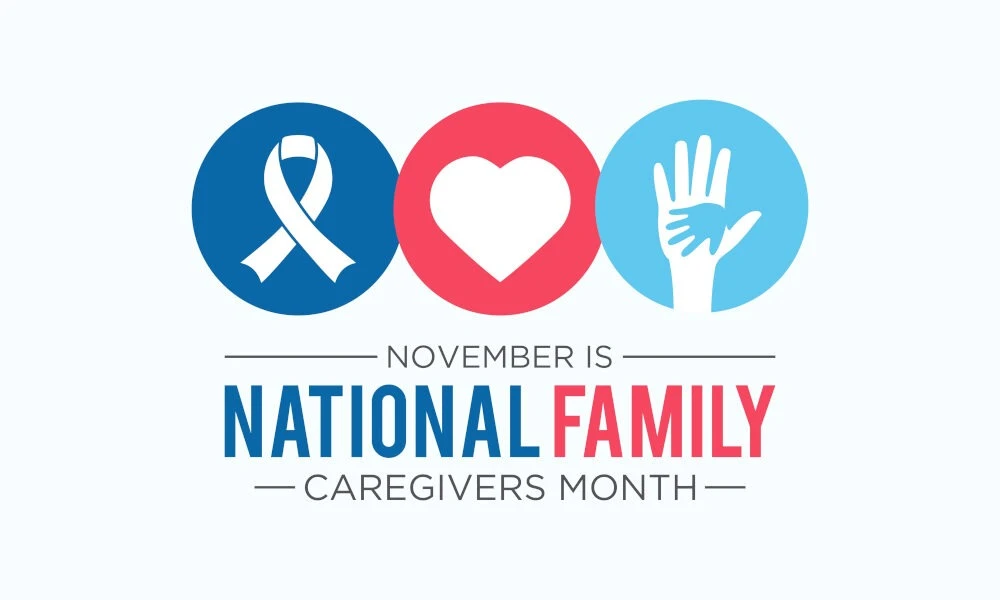According to the National Council on Aging, families are often the primary source of support for individuals with disabilities and older adults, with more than 53 million family caregivers providing critical unpaid care in the United States alone. These essential caregivers manage tasks ranging from medical care to financial care to personal care to daily decision-making, often with little or no support or recognition.
November is National Family Caregivers Month, a time for us to honor the millions of family caregivers who provide essential and often unpaid support to family members, loved ones, and friends who cannot provide care for themselves due to age, disability, or illness. This month, we recognize the tireless work of family caregivers by understanding the legal tools available to them that can support and protect them and their loved ones.
Understanding Guardianship and Conservatorship
When a loved one can no longer manage their own personal affairs, the family must sometimes ask the court to appoint someone to make decisions for them. Guardianship and conservatorship are legal tools that can give family caregivers the authority and protection to make decisions for those they love and care for.
Guardianship
Guardianship is often pursued when an individual can no longer manage their own care because of advanced age, illness, or disability. Guardianships are common in cases involving young children, adults with disabilities, or older adults living with dementia or other cognitive issues. A guardianship grants an individual – the guardian – the legal authority to make personal, medical, and living arrangement decisions for the person they care for.
Conservatorship
Conservatorship, on the other hand, grants a designated individual – the conservator – power to manage an individual’s finances who can no longer do this independently. Conservatorships are typically granted in situations where the individual has significant assets, although it can be sought for anyone needing assistance with making sound financial decisions.
Both guardianships and conservatorships are appointed through the court and involve oversight to protect the rights and interests of the person requiring assistance. While these roles may seem straightforward, the responsibilities and duties can be complex, going well beyond the traditional family caregiving role.
Schedule your free meeting with our team today to see if our Lawyers can help you.
When Would a Guardianship or Conservatorship Become Necessary?
In some cases, a sudden health crisis or gradual decline in a loved one’s ability to manage their own affairs may warrant legal arrangements such as a guardianship or conservatorship to ensure that individual’s safety and well-being.
Memory Loss or Cognitive Decline
Loved ones with dementia or other cognitive impairments can struggle with everyday tasks. As this progresses, they can become disoriented, wander away or even unintentionally harm themselves.
As their ability to make safe and informed decisions about their personal care diminishes, guardianship can help a caregiver to address their day-to-day care, manage their health care, and oversee their living arrangements.
Physical Decline
When a loved one has significant disabilities, it can restrict their ability to perform basic self care. Limited mobility might prevent them from dressing, bathing, or even moving safely within their living space, making them susceptible to falls, infections, and malnutrition.
When physical capabilities decline significantly, they may also face challenges in assessing their own medical needs or health conditions. A caregiver with formal decision-making authority can arrange for medical treatment, advocate for their healthcare needs, or arrange for appropriate living environments that accommodate their limitations.
Mental Health Issues
Mental health issues can impair a loved one’s judgment and their ability to make good decisions for themselves. Many face challenges maintaining basic hygiene, their finances, or even safe and stable housing.
For individuals with severe mental health challenges, a guardianship may be needed for a caregiver to manage day-to-day responsibilities, medication adherence, arrange for necessary psychiatric care, and support their loved one’s ongoing stability. In cases where mental health conditions are affecting the individual’s financial decision-making, a conservatorship can help prevent potential financial abuse or mismanagement.
Incapacity
If your loved one is experiencing significant cognitive decline, conservatorship provides a caregiver with the legal authority to oversee their finances and ensure that they are managed properly. A conservator will be responsible for budgeting, paying bills, protecting assets, and making financial decisions in the individual’s best interests while safeguarding their resources from mismanagement or potential exploitation.
How Can You Balance a Guardianship or Conservatorship Within Your Family’s Existing Dynamics?
While a guardianship or conservatorship can help provide essential structure and authority for family caregivers, it can also be emotionally challenging when family members disagree about whether it is necessary or who should assume these roles. Conflict can arise in the most cooperative and understanding families, especially when the loved one in need resists the idea or family members have different views about what is best.
For families navigating these issues, discussions should be approached with empathy and their loved one’s safety and comfort in mind. Sometimes, consulting with an elder law or estate planning attorney or family mediator can help families reach a place of understanding and consensus based on their loved one’s needs and the legal guidelines.
Click to contact our family lawyers today
What are the Potential Drawbacks of a Guardianship or Conservatorship?
While guardianships and conservatorships can provide crucial support for families with loved ones who are unable to make personal, medical, or financial decisions on their own, these legal arrangements do have some drawbacks.
Loss of Autonomy
An individual under a guardianship or conservatorship will no longer be able to make decisions about their own life, such as where they live or how they spend their money. The guardian or conservator will now make these decisions. For people with fluctuating capabilities, this loss of control over their lives can be especially challenging and could even cause a decline in their mental health.
Risk of Abuse or Exploitation
Guardianships and conservatorships can leave the individual vulnerable to abuse or financial exploitation by others, particularly if the guardian or conservator misuses their authority. Even well-intentioned family members may inadvertently mismanage assets or make decisions that do not align with their loved one’s best interests.
Legal Complexity and Cost
Establishing a guardianship or conservatorship will involve court proceedings and administrative expenses, which can be a burden for the family and potentially reduce the financial assets available for their loved one’s care. Furthermore, guardians and conservators must submit regular reports to the court detailing any decisions made for their loved one and their ongoing well-being, which can be time-consuming and complex for family members inexperienced with legal and financial procedures.
Schedule a call with one of our client services coordinators today
Less Restrictive Measures That Enable Family Members to Help Care for Their Loved One
Most family caregivers want to act in their loved one’s best interests and honor their preferences whenever possible. Unfortunately, many individuals wait until it is too late and the family is left without the legal tools necessary to make decisions for them that align with their wishes. Sometimes, this leaves family members to seek formal authority through the court system to make decisions for their loved one through guardianship or conservatorship.
However, there are less restrictive measures that enable caregivers to make decisions for their loved ones, providing they were made by the individual proactively. These options include:
- A durable power of attorney or health care power of attorney allows a trusted individual to make financial and health care decisions on their behalf without a formal court appointment.
- Advance healthcare directives provide instructions for healthcare preferences in the event they are not able to communicate these wishes on their own.
- Creating or updating a comprehensive estate plan addresses all these things and ensures their assets are managed according to their wishes while they are alive and after they are gone.
Shining a Light on Family Caregivers
National Family Caregivers Month highlights the vital and difficult role unpaid family caregivers play in our society today. Around-the-clock caregiving is challenging at best, and families often must rely on legal tools to help them provide the care their loved ones need and deserve.
When a family member is disabled or incapacitated, proactive estate planning helps caregivers make decisions that align with their wishes. But when plans have not been made in advance, caregivers may have to rely on the court to appoint someone to make these decisions and ensure their loved one’s care and best interests. Unfortunately, this is often an added burden to an already challenging role for the family.
Don’t wait to make these important decisions for your own future and that of your family. A comprehensive estate plan protects everyone involved and ensures your wishes are being honored even when you can’t communicate them. If you have questions about estate planning and ensuring your medical and financial future, the experienced estate planning attorneys at Melone Hatley, P.C. are here to answer them. Call today at (877) 395-5598 to learn more.
Schedule a call with one of our client services coordinators today.




